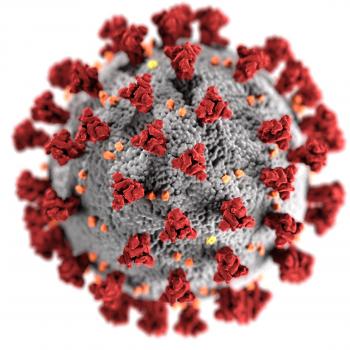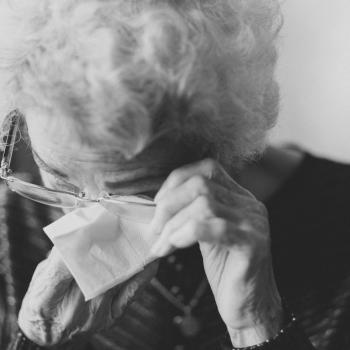
Books, books, books are on my mind this week. Here’s why:
I read Kind Is The New Classy, by Candace Cameron Bure with my daughter. Her message that the world needs more (so much more!) kindness is rock solid truth. She quotes Scripture throughout to back up her point, which, for someone in Hollywood was brave. My only beef was that the middle of the book was a lot more about Candace’s life than anything, and I walked away wishing it went deeper than it did. I mean, she promoted much self-care and goal setting, which is fine, right up until you meet someone like myself who can’t do those things like a normal person. She advocates for never allowing yourself to be hungry or overly tired, because you will likely not respond to the challenges of life well if you’re suffering in those ways. This is true. But what happens when you can’t eat a well-rounded diet, and haven’t for decades, and you suffer from fatigue at some level no matter what you do? Or you don’t set hardly any goals because you’ve no idea what you will be able to physically accomplish from one hour to the next?
My guess is she hasn’t thought to that level because she hasn’t experienced that level of hardship. And that’s fine. I certainly don’t wish suffering upon her. I’m only saying that those of us who have experienced significant hardship in those ways may find it difficult to walk away from the book encouraged. We may even walk away a bit discouraged because we don’t resonate with how to live a Christian life when being consistently well off physically, financially, emotionally, etc. Having said that … comfort and ease can be its own burden and present its own difficulties. I doubt my ability to handle good health or wealth well, and yet, I can look at people in other parts of the world and say with utmost confidence that, in comparison, I am both healthy and wealthy.
So off that merry-go-round and on to other books …
I’m reading A Tree Grows in Brooklyn, because a friend recommended it. I got about thirty or forty pages into it before one of my daughters texted me and told me it was the worst book she’d ever read and that I should probably save myself the agony of reading it. Haha! My girls are blunt and honest and I’ve no idea where either of them get it from. But I wrote my girl back and said, “Uhhh. I’m on page thirty-something and I love it so far. Stop talking to me.”
Eventually, we agreed that since she read it in the tenth grade, and I’m reading it at age (almost 46), perhaps the worldview and perspectives of her then versus me now is a smidgen different. I’m currently on page one hundred-something, and I still love it. Anna Quindlen wrote the forward in my particular copy. In part, she said:
A Tree Grows in Brooklyn is not the sort of book that can be reduced to its plot line. The best anyone can say is that it is a story about what it means to be human.
Nothing more needs to be said, in my book. Because if a story or other piece of writing is about what it means to be human, I instantly approve. Granted, humanity can get gruesome and horrifying, and some of that I can’t take. Novels by the Christian fiction author Brandilyn Collins, for instance. I read three chapters of one, because my sister-in-law got so hooked on them, she became a zombie, staring at the pages until all hours of the night and then walking around with dark circles and a hangry look the next day. Surely, I said to myself, Brandilyn Collins’ books must be terrific. After all, I had been the one to get my SIL hooked on Christian fiction in the first place, so it was only logical that we would appreciate the same works of art.
Wrong. So wrong.
I don’t remember the name of Collins’ book, but I can still tell you exactly what happened in the gruesome, opening scene, as it’s etched into my memory forever. In short, a woman gets killed by a man who bangs her head into the concrete over and over. And over. The scene was vivid and much too reminiscent of the Unsolved Mystery shows Mom watched as I was growing up, only the book scene required very little imagination, if any.
Do murders happen? Yes, of course. And rapes? No doubt. But I think good books should have mercy on my fears. Philippians 4:8 tells us to meditate on things that are true, noble, just, pure, lovely, and of good report. Two-hundred, almost three-hundred pages of pure terror and gore keeps me from doing that. Besides. I value peaceful sleep.
I also received a book in the mail this week. You’ve probably heard of it, because it’s put out by The Babylon Bee, and it’s titled How To Be A Perfect Christian.
I have no idea why I received a copy. The publishing house sent it to me directly, with a note on the outside saying “you will not be charged for this copy.” This was an especially kind notice, as shortly after it came, I panicked about my Amazon account being hacked or me ordering books in my sleep again.
My dilemma is, what do I do with it?
The Babylon Bee isn’t a site I read. I did, when they first started out, and I even considered sending in a submission, because I can wield satire with the best of them (just kidding, I’m only mediocre). But the more I read, the more I felt that satire can truly be overused. At times, I would read their posts, and think that some poor little old Christian lady is going to read what some smarty pants pastor wrote and wonder what’s so funny because she’s lived her entire life in the exact manner he mocked and doesn’t understand the fuss.
Jesus used satire, and it’s entirely fine for humans to use it as well. But – all things in moderation. I am not inclined to read an entire book on poking fun at people attempting to find the right way to live life. Usually, it’s better to help others in loving, constructive ways. Sometimes, it’s necessary and even right to use satire, because some people’s heads (mine included) are made of dried brick and mortar, and the only way to get the truth to break through is to poke fun, or make a point by presenting people as ridiculous creatures.
Satire, in my book, is something to use, but not liberally. Satire alone does not make a good book. But satire sprinkled throughout a book might make a page turner. Probably not though, unless you’re Douglas Wilson, the real satire expert. Anyway, How to Be A Perfect Christian won’t be read by me. I’m simply going to sell it in my new Amazon bookshop, which I’ve started to help us pay off mounds of medical bills.
This new endeavor, plus the book buzz I’ve already discussed is pushing me to consider what exactly makes a good book. I’ve combed through books at Goodwill, yard sales, and the Barnes and Noble clearance rack recently, looking for good deals on good books, so I can turn around and gouge some innocent soul (#satire) who perhaps needs a book asap but doesn’t have time to go tootling about town looking for it. What makes a good book and what makes a book sell could be two different things. I will probably sell a few books that aren’t worth much in the literary sense until I get my inventory built up. But eventually, I’d like to exclusively sell good, wholesome literature I would read and recommend. Everything from God honoring, true spiritual books to Calvin and Hobbes to an Atlas. Atlases, I hear, sell very well, and they’re interesting, informative, and innocent.
So what makes a book good?
The Bible is often called The Good Book. I’ve always assumed we refer to it as good because it’s all about God, and God is good. It’s also absolutely true, and whatever is true is either good or good to know. I mean, it’s true that David slept with Bathsheba and then killed her husband to cover up his sin. That’s clearly not good. But it’s good to know the situation, see ourselves or our potential selves in the story, and learn from David’s sin and subsequent repentance. Also to be noted is that though we know what happened between David and Bathsheba, we are not given the nitty gritty details. And we know David killed, but we are not privy to the gore. So there are appropriate and inappropriate ways to discuss the sins and depravity of man.
Ultimately, in my book, a book can either be good because it’s true and well said, or because it’s entertaining and wholesome – a rarity these days. Fiction is not true as far as setting, plot, names, etcetera are concerned. But fiction can absolutely be true in principle. A Tree Grows in Brooklyn is good because it takes the real life of a very poor girl growing up in the east and allows a woman seventy-some years later in the west to read, ponder, learn, and grow from the life of another. It’s get me out of my own head. My four walls. My problems. My self-centeredness. It helps me remember that others have had it much worse than I ever have, and that sickness has always been a condition of humanity, whether that sickness be spiritual, physical, emotional, or mental.
It assures me I’m not alone.
Whether it tells me about God’s solution to man’s problems is yet to be seen (it’s a five-hundred page book!), but even if it doesn’t, I can always look in The Good Book. Jesus Christ will always be the answer to humanity’s problems, whether those problems originated from our own sin or the sin of another. Half of life is learning to kill our own sins. The other half is learning to not kill another for his or her sins, but rather graciously deal with sinners the way Jesus would.
So I’ve told you what I think makes a good book. We probably don’t agree wholeheartedly, and that’s okay. Grace and Peace to Brandilyn Collins, Candace Cameron Bure, and everyone at The Babylon Bee. They are my brothers and sisters in Christ, and I mean no disrespect or harm. What I mean to do is figure out more concretely what makes a book good, and I kindly thank you for listening to my attempt to do so.












